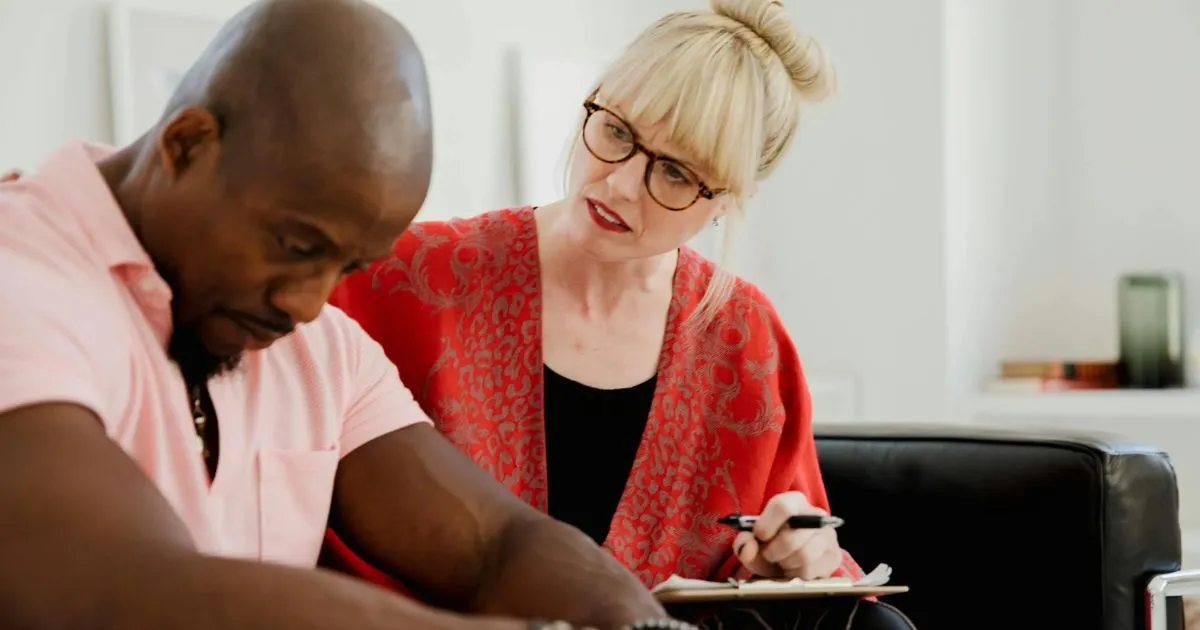
In a world where we constantly see confident male leads in movies and the actresses who seduce all men on screen with effortless allure, it’s no surprise that many men feel pressure to live up to unrealistic expectations—especially in the bedroom.
But real intimacy isn’t built on fantasy. It’s built on honesty, vulnerability, and mutual respect.
If you’re a man struggling with erectile dysfunction (ED), you’re not alone—and you’re definitely not broken. In fact, according to the Cleveland Clinic, about 52% of men will experience ED at some point in their lives. The real challenge isn’t the condition itself; it’s having the courage to talk about it with your partner.
What Is Erectile Dysfunction (ED)?
ED is defined as the inability to achieve or maintain an erection suitable for sexual activity. It can be caused by various factors, including:
- Stress and anxiety
- Relationship issues
- Health conditions (diabetes, heart disease, etc.)
- Hormonal imbalances
- Medication side effects
While it can feel embarrassing, it’s often temporary and treatable—especially with the support of a loving partner.
Why Talking About Erectile Dysfunction Is Important
Silence can create distance. When you hide something like ED from your partner, it doesn’t protect them—it usually creates confusion, insecurity, or misunderstandings. Your partner may start to think:
- “Is he not attracted to me anymore?”
- “Did I do something wrong?”
- “Is he losing interest in our relationship?”
By having an honest conversation, you take control of the narrative. You show your partner that your connection matters more than pride. And that can actually make your bond even stronger.
How to Prepare Yourself Before the Conversation
Talking about ED may feel overwhelming, especially if you’ve never opened up like this before. Here’s how to prepare emotionally and mentally:
1. Let Go of Shame
ED doesn’t define your masculinity. It’s a medical and emotional issue—just like a headache, back pain, or stress overload. The moment you treat it as a challenge, not a failure, you gain power over it.
2. Understand the Cause (If Possible)
If you’ve noticed patterns (e.g., only happens when stressed, or after drinking), write them down. This insight can help you explain things calmly and avoid unnecessary confusion.
3. Think About the Goal
You’re not just admitting something—you’re inviting your partner into a conversation that affects both of you. Focus on problem-solving, connection, and trust.
How to Start the Conversation With Your Partner
Here are actionable steps to guide your communication:
1. Choose the Right Time and Setting
Avoid having this talk right after intimacy fails. Emotions can be high. Instead, find a calm moment when you’re both relaxed—maybe during a walk, over coffee, or while cuddling on the couch.
2. Be Honest but Gentle
Use “I” statements to express your experience without blaming yourself or making your partner feel at fault.
Example:
“I’ve been noticing some changes in my body lately, and it’s been affecting our intimacy. I want to talk to you about it.”
“It’s been frustrating for me, and I wanted to share it with you because I trust you.”
3. Avoid Medical Jargon
Keep your explanation simple. You don’t need a doctor’s speech. Just be real.
Example:
“Sometimes my body isn’t cooperating, and I know it’s affecting our intimacy. It’s not about you—it’s something I’m figuring out.”
4. Reassure Your Partner
Remind them that your desire and love haven’t changed.
“This doesn’t mean I’m not attracted to you. I love being with you, and I want us to work through this together.”
How Your Partner Might React—and How to Handle It
Reactions will vary depending on your partner’s personality, understanding, and emotional state. Here’s how to handle different responses with compassion:
| Reaction | How to Respond |
|---|---|
| Supportive and kind | Express gratitude. “Thank you for being so understanding. It means a lot.” |
| Confused or insecure | Reassure. “This isn’t your fault at all. It’s something I’m working through.” |
| Upset or surprised | Stay calm. “I understand this is hard to hear. I didn’t want to hide it anymore.” |
| Silent or withdrawn | Give them time. “I know it’s a lot. We don’t have to fix everything now.” |
Remember, this is a process—not a one-time chat. Be open to ongoing conversations.
You can olso read : The Most Beautiful and Charismatic Actresses Who Captivate Audiences Everywhere
Solutions and Steps You Can Take Together
Once the issue is on the table, show your partner that you’re not giving up—you’re taking action.
Explore Medical Options
Book a doctor’s appointment or talk to a urologist. ED is often treatable with:
- Lifestyle changes (diet, exercise)
- Therapy or counseling
- Medications (Viagra, Cialis)
- Hormone support
Let your partner be part of this journey. Say:
“I’d like to get professional advice—maybe we can talk about it together.”
Strengthen Emotional Intimacy
Focus on non-sexual closeness to remind your partner that intimacy goes beyond physical performance:
- Cuddle more often
- Spend quiet moments together
- Hold hands, hug, kiss
- Share compliments and encouragement
Sometimes, emotional closeness leads to physical recovery.
Keep Exploring Pleasure (Without Pressure)
Take sex off the pedestal for a while. Try things like:
- Sensual massages
- Slow dancing
- Intimate conversations
- Mutual touch without expectations
This helps relieve pressure and reminds both of you that intimacy is about connection—not just performance.
Managing Long-Term Impact Together
If ED is ongoing, it can change your intimacy pattern—but it doesn’t have to weaken your relationship. Here’s how to stay strong as a couple:
| Strategy | Why It Works |
|---|---|
| Open check-ins | Encourages emotional closeness and normalizes vulnerability |
| Therapy (individual or couple) | Provides a safe space to explore emotional and physical blocks |
| Celebrate small wins | Builds confidence and reduces stress around intimacy |
| Set new definitions of intimacy | Redefines success in bed beyond erections or intercourse |
Addressing Cultural Pressure and Unrealistic Media Standards
It’s hard to admit personal struggles in a world filled with idealized love stories, movie couples, and the pressure to always “perform.” Let’s not forget:
- Media constantly displays the actresses who seduce all men with effortless charm—but that’s fiction, not real-life intimacy.
- Real relationships are built on acceptance, communication, and vulnerability.
By opening up about ED, you’re not failing. You’re showing strength, courage, and emotional leadership—which your partner will likely admire.
Final Words: Honesty Builds Deeper Love
Communicating about erectile dysfunction may feel awkward at first, but it’s one of the most mature, loving, and relationship-strengthening things you can do.
When you let your guard down and invite your partner into your experience, you build something deeper than sex: trust, safety, and real connection.
“Intimacy is not just about physical closeness—it’s about emotional truth. When you trust your partner with your vulnerability, you both grow stronger.”



